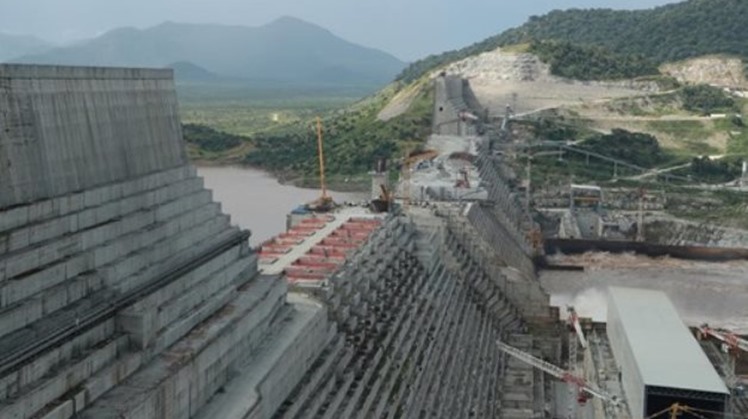CAIRO – 21 August 2025: Minister of Foreign Affairs Badr Abdelatty held phone calls with his foreign counterparts in several African countries, during which he reaffirmed Egypt’s rejection of unilateral measures that violate international law in the Eastern Nile Basin.
The phone calls on Thursday included discussions with the foreign ministers of Sudan, South Sudan, Djibouti, Uganda, Kenya, and Somalia.
It’s worth noting that Ethiopia is preparing to officially inaugurate its 74 billion cubic meter Grand Ethiopian Renaissance Dam (GERD) in September despite longstanding objection by Egypt and Sudan, the downstream countries.
Ethiopia has continued filling and operating the dam over the past years, brushing aside demands by Egypt and Sudan, the downstream countries that a written agreement must be reached first to secure their water interests.
Egypt has repeatedly warned that the filling and operation of the dam with the absence of a clear legally-binding agreement is an “existential threat” with the country relying on the Nile for over 98% of its water supply.
Meanwhile, Ethiopia has claimed that the dam will not harm the water shares of the downstream countries and will also benefit them.
During his conversations, Abdelatty highlighted water security as existential for Egypt, stressing the need to adhere to the rules of international law concerning shared water resources.
The Egyptian foreign minister underscored the importance of cooperation to ensure mutual benefit based on international legal principles.
He highlighted the importance of consensus as a fundamental principle governing relations between riparian states sharing transboundary watercourses.
Besides the water file, Abdelatty discussed with the foreign ministers means of enhancing bilateral relations with their countries and also addressed several African issues of mutual concern.
The discussions stressed Egypt’s commitment to advancing its bilateral ties in the economic, trade, and investment sectors with African nations through various mechanisms.
These particularly include the funding mechanism for development projects in the Southern Nile Basin countries and the programs and grants provided by the Egyptian Agency of Partnership for Development (EAPD).
The conversations also underscored the importance of intensifying cooperation among African countries within the framework of South-South cooperation as a central approach to supporting shared interests, exchanging expertise, and strengthening the capacity of countries to address developmental challenges.
The talks addressed the importance of joint efforts to enhance African institutional mechanisms and strengthen the role of the African Union in addressing the continent’s priority issues, particularly those related to promoting peace, security, and stability across Africa.
This, in turn, would support development, food security, and economic integration, in line with the African Union’s Agenda 2063 and the outcomes of the previous four editions of the Aswan Forum for Sustainable Peace and Development.
The discussions further touched on developments in the Horn of Africa and Red Sea region, with an emphasis on the need to intensify consultation to address challenges in a way that safeguards stability and supports development across the continent.
Last week, President Abdel Fattah El-Sisi affirmed Egypt's complete rejection of unilateral measures in the Eastern Nile Basin, emphasizing that anyone who believes Egypt will turn a blind eye to its water rights is "mistaken."
During a joint press conference with Ugandan President Yoweri Kaguta Museveni, Sisi stated that “we will continue to monitor the situation and take all measures permitted under international law to safeguard our people’s existential resources.”
Sisi stressed that Egypt does not oppose any development for our partners in the Nile Basin countries, but Egypt's only concern is that this development does not affect the nation’s water share.
 Thu, Aug. 21, 2025
Thu, Aug. 21, 2025